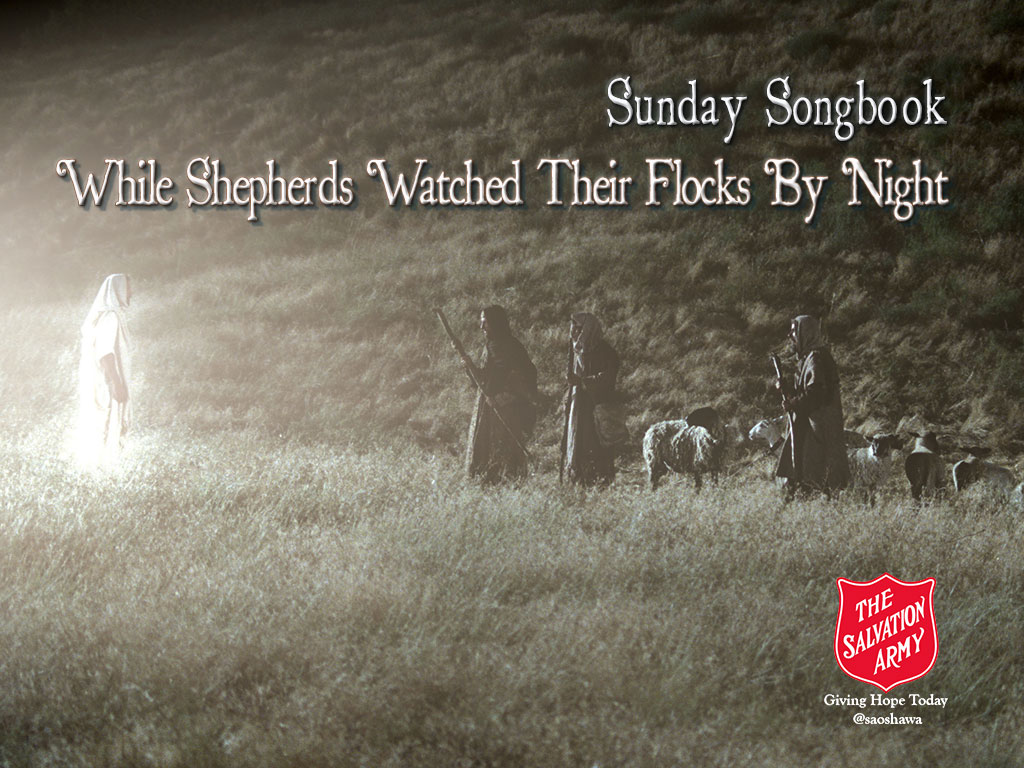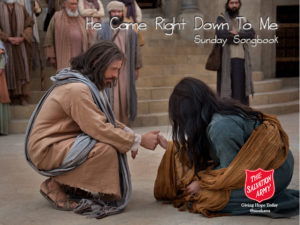While shepherds watched their flocks by night
All seated on the ground,
The angel of the Lord came down
And glory shone around.
“Fear not!” said he, for mighty dread
Had seized their troubled mind;
Glad tidings of great joy I bring
To you and all mankind.
To you, in David’s town this day,
Is born of David’s line
A Saviour, who is Christ the Lord,
And this shall be the sign:
The heavenly Babe you there shall find
To human view displayed,
All meanly wrapped in swathing bands
And in a manger laid.
Thus spake the seraph and forthwith
Appeared a shining throng
Of angels, praising God and thus
Addressed their joyful song:
“All glory be to God on high
And to the earth be peace;
Goodwill henceforth from Heaven to men
Begin and never cease!”
This is one of the oldest traditional carols that we sing today. The author, Nahum Tate, worked with his friend, Nicholas Brady, to bring about quite revolutionary changes to the style of hymn singing used in their day – the 17th century. They knew that many church members were displeased with the chant-style settings of Psalms, and so they wrote and published some hymns of their own. Although the new hymns were opposed at first by some, they were soon given royal endorsement by William and Mary of England and gradually were accepted by congregations. The hymn book was called New Version Psaltery. The above carol, however, is the only song from that book still used today.
Quite revolutionary changes to the style of hymn singing. Share on X Nahum Tate was a talented playwright and poet, and in 1692 he was appointed Poet Laureate of England. In 1702 he was appointed Royal Historiographer. He continued in this position into the reign of Queen Anne. Unfortunately, Tate led a somewhat disreputable lifestyle and he died a drunkard in a debtors’ prison. How sad that this should be the life’s ending of someone who contributed so much to congregational singing in the Protestant Church! Let’s remember him for this familiar retelling in song of the story of the first Christmas.
Nahum Tate was a talented playwright and poet, and in 1692 he was appointed Poet Laureate of England. In 1702 he was appointed Royal Historiographer. He continued in this position into the reign of Queen Anne. Unfortunately, Tate led a somewhat disreputable lifestyle and he died a drunkard in a debtors’ prison. How sad that this should be the life’s ending of someone who contributed so much to congregational singing in the Protestant Church! Let’s remember him for this familiar retelling in song of the story of the first Christmas.
WORDS: NAHUM TATE; MUSIC: TUNE – WINCHESTER OLD, ATTRIBUTED TO THOMAS ESTE ALTERNATE TUNE – CHRISTMAS, BY GEORGE F. HANDEL
S.A. SONG BOOK, 1987 EDITION, #93; 2015 EDITION, #132
REFERENCE: HOWES, IAN, CELEBRATION MORNING







